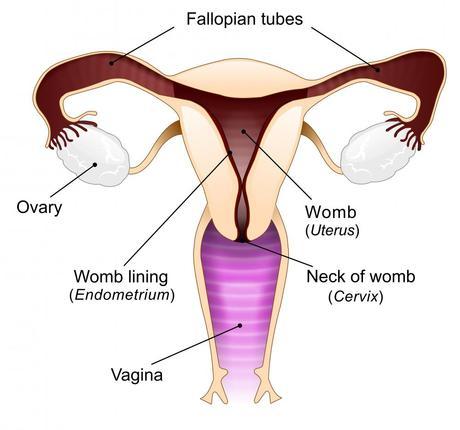Each menstrual cycle, your body releases a mature egg in the hopes that a sperm will fertilise it. Fortunately, thanks largely to modern methods of birth control; conception does not happen every month. But unfortunately for those trying to make babies, conception may not happen every month even when you want for it to happen. In order to understand this, it is important to understand the life cycle of a woman's egg during the cycle it ovulates.
 Image sourceIt starts with the follicular phase
Image sourceIt starts with the follicular phaseThis first day of your menstrual cycle is marked by the first day of your period. One way to describe the menstrual cycle is by the phases of the ovary (ovarian cycle); another way is by the phases of the uterus (uterine cycle). For the purpose of this article we are going to describe the phases of the ovarian cycle. Each cycle begins with the follicular phase, which continues until ovulation. The average follicular phase length usually spans a period of about two weeks, but the length can vary from cycle to cycle. During this time, several ovarian follicles begin maturing under the influence of a hormone called follicle-stimulating hormone (FSH). These follicles compete with each other for dominance and all but one will stop developing. The dominant follicle will continue to grow until ovulation. Ovulation phaseThe second phase of the ovarian cycle is ovulation. A surge of luteinising hormone (LH) and FSH, which lasts approximately 24 hours, matures the egg in the dominant follicle, which causes the follicle to rupture and release the mature egg cell.Next is the luteal phaseThe last and final phase of the ovarian cycle is called the luteal phase, which starts on the day after you ovulate and ends the day before your next period. After the egg has been released, it is swept up by one of the fallopian tubes (determined by which ovary released the egg). The egg will travel down the fallopian tube towards the uterus where it will hopefully be fertilised by sperm.The clock is ticking for the eggThe luteal phase will continue for about 12 to 16 days from when you ovulate, but once the egg is released, its time is very limited. In fact, the egg only has a lifespan of about 12 to 24 hours, and sometimes even less. After this time, the egg will begin degenerating if not fertilised.How does conception ever occur in such a short time?
Fortunately for the egg, the sperm have a longer lifespan and can live in a woman’s body for up to five days. And really, the sperm have more work to do than the egg, so this makes sense. Since the sperm have to travel from the vagina, through the cervix and the uterus, and into the correct fallopian tube before they have a chance at reaching the egg, they naturally need more time. So, sperm that entered your body up to five days ago may be able to fertilise the egg in the short window of time available.


FACEBOOK | TWITTER | INSTAGRAM

